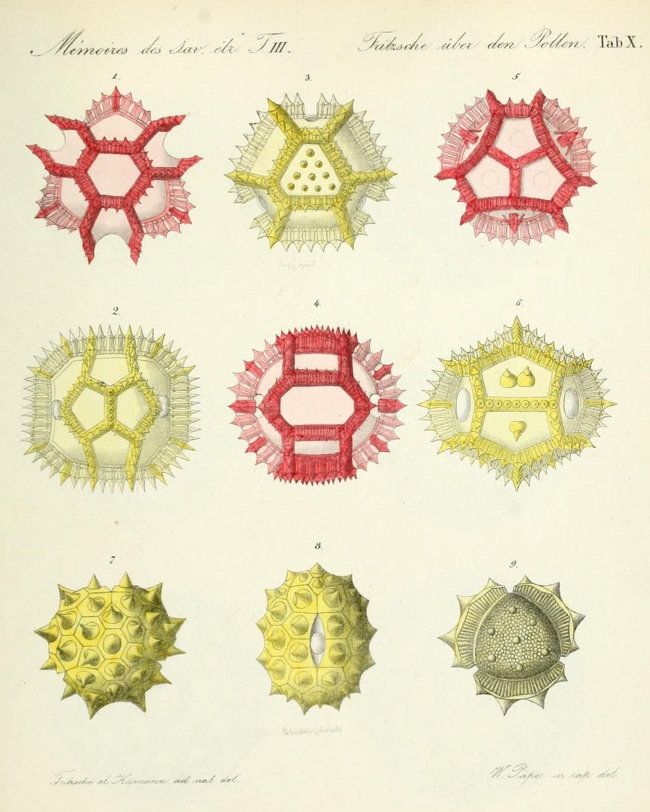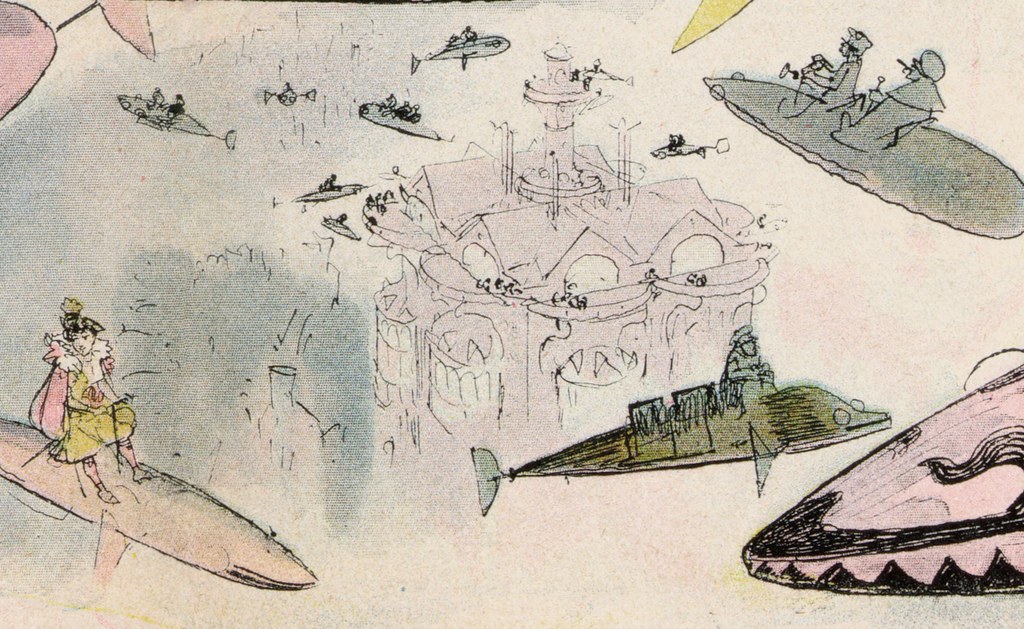Thomas Cook lives in the Pioneer Valley of Massachusetts, where he’s completing a dissertation on the novels of David Foster Wallace and editing the latest issue of Tammy.
Author: augurybooks
An Excerpt from Finalist Ben Gantcher's "Snow Farmer"

The preppy hombre
ferried the sunlight on his shoulder
but didn’t speak to it
trotting through the wrestling
signatures of such and such
I have been his age
legible in the rorschach
insensible to the provenance
of flourish or giant
absence of giant Nightingale
with a tweed lid in a cedar
closet The dollar
vans are singing of home
on the Fulton Mall
The world has been resurrected
through its furnishings
I will have added
dogwoods leaning over the fence
with some foolishness and the sycamores
in the sky in their rapture
Ben Gantcher’s recently completed manuscript of poems, Snow Farmer, was a finalist in the 2014 Omnidawn Open book contest. His first chapbook, Strings of Math and Custom, was published in 2013 by Beard of Bees Press. If a Lettuce, his first manuscript of poems, was a finalist in the National Poetry Series and Bright Hill Press contests. His poems have appeared in many journals, including Tin House, Slate, Guernica and The Brooklyn Rail. He is a 2014-15 fellow at LABA. He was nominated for a Pushcart Prize, a resident at Ucross and Omi, a correspondent with the Hyde Park Review of Books and a poetry editor of the online journal failbetter. He teaches math, Language Structures and an interdisciplinary writing and visual art studio course at Saint Ann’s School in Brooklyn, NY, where he lives with his wife and three children.
An Excerpt from Finalist Stephanie Austin’s "Flash Art"

“You have to start identifying triggers,” my counselor said. “Tell me more about community service.”
I situated the Nicorette behind my gums on the left side of my mouth and waited for the area to numb up.
“It’s a nightmare,” I said.
“My narcissistic mother was a nightmare,” she said. “You’re cooking food for homeless people.”
“I’ve never actually cooked anything over there.”
Liz raised her eyebrow.
“I’m no innocent person, but there are people there who committed serious crimes,” I said. “But the guy who runs the place is cute, so at least I have something to look at while I’m slinging loaves of bread.”
That was supposed to be a joke. Not really. I mean, it was a joke but it could also be real. Her cell rang. She put one shiny nail to her lips. “Hi,” she said seductively, smiling into the phone. I knew it was a man on the other end. “Can you hold one moment?”
She put the phone to her chest and motioned for me to meet her in the space between us. “I have to take this. He might be suicidal.” She twirled her finger in the air and rolled her eyes. “In the meantime, think about the men you’ve chosen and how you got involved in your mess because of them.”
And then, as if to make sure I totally got was she was saying, she mouthed crazy and pointed to the phone. I leaned my head back, looked at the crown molding on the ceiling and tried to make my mind go blank. The harder you try not to think, the more you think. Thinking is where you make fear. Fear is where you start blowing yourself up. Every time I drink or do drugs, I fall in love. Until the next morning when I wake up and think: there is no such thing as love. We’re all just getting by until we can’t anymore.
“So sorry about that,” she said, referring to her caller after she hung up. She took in a breath. “We were talking about the food place. Give me some details.”
I began. “The walls are the color of mustard. There’s a girl that smells like Vienna sausages. The lines in the parking lot have faded, so no one knows where to park. Someone thought it was a good idea to paint the brick building white. I think mold is growing in the carpet in the main dining area. Jesus, who puts carpet in a dining area? It’s this horrid green color that looks like an infection. Everything is damp. It’s like an old basement.”
She’d been staring outside the window at a bird on the ledge. It looked at her through the glass, then flew off. She turned to me.
“Are you sleeping with this guy?”
“What guy?”
“The cute one.”
“No.”
“Let’s try this again. Are you sleeping with him?”
I rolled my eyes. “I’m not sleeping with him. I just said he was cute.”
She jotted something else down then set her pen against the pad and placed it on her lap. “You’re here because you’re addicted to love,” she said, “and now you’re lovesick. Love addiction is the worst kind of addiction. It’s the hardest to overcome.”
I think about the last conversation I had with my public defender. Judges like remorse, she’d said.
“I’m sorry,” I said to Liz.
I waited for her to write that. Patient was sorry. Patient was very fucking sorry.
Liz smiled at me like I was an insufferable child. “Honey, you never have to apologize to me.”
The air conditioning clicked off. The room downshifted. Liz picked up her pad again. Outside, it was still light. It was late September, and summer was trying to leave, but the humidity—the kind that didn’t give a crap about anyone but itself—seemed desperate to hang on.
—
Stephanie Austin’s short fiction has appeared in American Short Fiction, The Fiddlehead, Washington Square Review, the South Dakota Review, fwriction: review, Eclectica, and numerous other online and print publications. Her creative nonfiction has appeared at Used Furniture Review, Extract(s), and as part of the New England Review’s Digital Series “Secret Americas“. She is an alum of the Community of Writers at Squaw Valley and holds an M.F.A. from the University of Nebraska – Omaha. She lives and teaches writing in Phoenix, AZ.
VIDEO & AUDIO: Maureen Alsop Publishes New Work Across Media, Countries

A detail from “Pollen Up Close” (1837), by Carl Julius Fritzsche, courtesy of Public Domain Review
Maureen Alsop (Mantic, Augury Books, 2013) has recently had several new pieces published online for the month of November. Spanning across text, sound, and video, as well as authorships and continents, they are a testament to the creative volume of Alsop’s work. See (and listen) below to receive a rounded view of her poetics.
Read a poem in Constraint, issue 48 of Australian poetry review Cordite.
A six-poem collaboration with the late Hillary Gravendyk has recently been published at The Volta in Arizona.
Listen to “Ensign March,” a poem from Mantic, translated into sound via telephone for Chicago-based Weird Deer.
View two video poems, “Vetiver” and “Thou,” at The Continental Review, an online journal devoted to video poetry and poetics.
—
Halina Duraj on "The Family Cannon" at The Story Prize Blog

Detail from “Le Vrai Patineur” (The True Skater) by Jean Garcin. Courtesy of The Public Domain Review
The Story Prize, founded in 2004 by Julie Lindsey and Larry Dark, annually highlights collections of short stories published in the U.S. Halina Duraj, as part of a contributor series, recently had the opportunity to talk appropriation in regards to The Family Cannon (Augury Books, 2014) on TSP’s blog. She speaks briefly about how the writing process becomes unconsciously driven, taking things directly from casual experience.
Maybe somebody had asked me what I was working on, and I said something about neighbors, and my friend told the anecdote about two neighbors sharing a property line on some land in Colorado. One neighbor was so angry about something the other neighbor had done that he situated a cannon, a real, working cannon, in his yard and aimed it at the offending neighbor’s house. I remembered laughing, and thinking about the anecdote’s resonance with my own story. But by the time I’d sat down to work on the story a few days later, I’d completely forgotten my friend’s anecdote—I’d forgotten that my friend had told it, and I’d forgotten that it ever existed outside of my own brain.”
Read the full post here. The Story Prize is currently accepting submissions of books published (or forthcoming) between July and December. See their website for more details and guidelines.
Suzanne Guillette on Perspective in Memoir

Suzanne Guillette. Photo by Wah-Ming Chang
A year ago this month, friend of Augury Suzanne Guillette (Much to Your Chagrin: A Memoir of Embarassment, Atria Books, 2009) published an essay on memoir in Tin House. Dealing with the roles of perspective and content, Guillette navigates personal experiences which help us to rethink whether or not plot needs to be “memoir-worthy.”
Though Rushdie and Auster may have gone on the record with other reasons for stepping out of the first-person memoir convention, other motivations were probably also at work: not only does crafted distance in memoir inure the writer against calls (internal and otherwise) of self-importance, but it also sets us further adrift in a dreamlike state, allowing the intersection of present consciousness with past events to be, indeed, a very trippy place. Quieting the memoir-worthy debate, writers can go granular, entering a uniquely conjured, not to mention lived, world.”
We think this essay is worth a revisit. Read the rest of it here.
INTERVIEW: Alison Espach Talks Kindle Singles, Her New Book, Teaching

Photo by Dave Bledsoe, FreeVerse Photography
Friend of Augury Alison Espach (The Adults, Scribner, 2011) is currently working on a new book, and she recently took the time to sit down with Augury assistant editor Nicolas Amara to talk about it, among other things.
Nick: If you’d like to say, what is your upcoming book about? What subjects does it deal with?
Alison: I would love to say, but every time I have talked about my upcoming book, I have ended up drastically changing what it’s actually about. Talking about the book too early had sort of demystified the subject matter for me and when I returned to the manuscript, I found myself wanting to write a different book. I’m really enjoying working on the book now, so just to be on the safe side, I’m going to shut up about it.
N: Do you see any parallels between The Adults and this new work? The Adults and your Kindle single, “Someone’s Uncle?”
A: I don’t think there is too much that’s similar about the new book, except the fact that I’m the author, which means there will, without a doubt, be some parallels I’m not aware of at the moment. I’m not referring to plot developments, but the kind of details and conversations I tend to focus on in my writing. Most of my writing falls within the space where the sacred meets the meaningless, and that results in a kind of absurdity, for better or for worse. An absurdity that was definitely present in The Adults and surely in the next book as well.
N: What was the experience of writing the single like? Did you already have this piece done or was it written specifically for Kindle?
A: I didn’t write the Kindle single to be a Kindle single. I just wrote it as a short story, so it was very much like the process of writing all of my short stories: I wrote a very bad skeleton version of the story, didn’t know what to do with it, forgot about it for almost two years, and then returned to it when I was frustrated with writing the novel. With two years of distance, I could see so clearly what was wrong with it. It was a rambling story that took place over the entire continent of Germany, and it had no frame or structure. That week, I had just been talking with my students about setting, and we had been looking at stories that were entirely contained in one physical space. I realized that was the kind of structural tension my story needed. I was most interested in the cathedral stairwell, the second tallest one in Europe, so the challenge of writing it became keeping the characters within that one space and to, ultimately, make it read like an infinite stairwell. It was a lot of fun to see who the characters became (and what was revealed) by the time they reached the bell tower.
N: You’re now teaching writing–what is your approach to teaching? How does one teach writing? How much of it can be taught?
A: I certainly think you can teach writing. I don’t think the point of teaching writing is to create writers out of non-writers; that’s a kind of pressure I don’t put on myself as a teacher. But I do believe that everybody can learn a lot from taking writing classes.
Sometimes people devalue creative writing classes by saying that creative writing cannot be taught, but I think that this assumes the creative writing class is all about “teaching” someone how to write. It’s not like I stand behind a podium and lecture, while they sit and absorb. A creative writing class doesn’t work like that. We all read, we all edit, we all talk, we all write, and we all listen. Yes, it’s the professor that guides the class and serves as a very important kind of anchor, but it’s really more of an interactive experience.
And creative writing classes aren’t just a place to teach and be taught; for many people, the classes are places where students can find necessary support from fellow writers and inspiration. They are places where students can benefit from the structure of a weekly meeting or a writing prompt in class. For some students, the twenty-minute writing prompt is where their real stories begin. The spontaneity of a writing exercise can eliminate some of the pressure students feel to write “serious literary fiction,” and it’s during those prompts when I find students often write their best work.
Some people say that “you can’t teach passion” either, and while that’s true to some extent, I do think that as a teacher you can aid passion. When I’m not reading, I’m always at risk of falling out of love with literature. When I’m not reading carefully, I’m missing the magnificence of something. I learned how to read critically and actively from some of my best professors and fellow graduate students. When I can fully see and appreciate a story (something that usually happens most when I teach a story), I’m passionate about it. So in that way, I think maybe you can teach passion.
Though Espach continues to work on her new book, her Kindle single “Someone’s Uncle” is available online for only 99 cents. Both “Someone’s Uncle” and The Adults can be purchased from Simon & Schuster.
October 25: Augury Books Speaks at Poets & Writers LIVE: Independent Publishing Panel at LoC

Detail of Le Sortie de l’opéra en l’an 2000, by Albert Robida. Courtesy of Public Domain Review
This coming Saturday, October 25th, Augury editor Kimberly Steele will be featured on the next P&W LIVE panel, held at the Library of Congress in Washington D.C.
Poets & Writers LIVE, developed by Poets & Writers magazine, aims to connect the independent literary community through a series of group panels featuring upcoming and established editors, publishers, and authors.
Other publishing companies represented will include Graywolf Press, Algonquin Books, New Directions, Black Balloon Publishing, Rose Metal Press, and Gival Press, as well as a featured reading by Charles D’Ambrosio.
Steele will be sharing her experiences as an editor of Augury Books at the Indie Editor Roundtable at 1:30. For more information about the day’s events, as well as P&W LIVE and how to register, head over to their site.
An Excerpt From "Letters to Lxxxx" by Randall Horton, Augury Books’ 2015 Prose Selection
Dear Lxxxx,
We script our lives on reaction rather than action, meaning our daily life is always in response to, or a reply to, a command or demand. The world uses us in that way—we are the backsided-brainwash of society’s failure—the aftersound of oppression, but we know this maxim, and yet become willing participants to our own commodification. The world does this to us—holds us down. Then too, I’ve been thinking about the question you pose with regards to women and believing. Perhaps images and how we nurture young women as a society creates this insecurity. The American Dream chokes little girl’s dreams insomuch as not all of them will be able to live up to ideal beauty as constructed by benefactors of the dominant narrative, or those who dictate the ebb and flow of how we live. Beauty is a dangerous thing, and understand, Brown and Black women historically bear the weight of civilization, in addition to their own weight, which, at times, can be daunting. But more than that, the male plays a role in this insecurity, especially in these so-called streets, by his rejection of the woman as equal counterpart and anything other than “sexual object.” We just wanna love and have some warm body love us back—objectification is a delicate balance.
In other words, I saw it play out often with men who dominated women to the point they broke their spirit and stole their sound. The women couldn’t speak of their own oppression because they had no language to express the unimaginable, reminding me of Pudding and Sunshine who prostituted. Pudding was her abuser wrapped in a six-foot frame complete with a gold tooth. Sunshine adored Pudding so much she strolled around Logan Circle in DC every night selling the one commodity she knew well, and that was her[self]. Here’s the oxymoron: Sunshine never saw the light. Darkness choked her to death. She never got to understand we are the shadows in the dark novelist Toni Morrison talks about. We play between histories. Our sound originates from the breaking of sound—and then again. Like life, language is only the beginning and perhaps in its death, too, comes a new beginning, a new language.
At any moment I am inside your peripheral vision, imagining with exact description, the six by nine cell you sleep in, in all its isolation because this is, indeed, something I can reinvent from memory. The gray cinderblock serving as the prison’s architectural foundation is always already present. The dull silver ambiance from the metal toilet emits a lackluster glow. Blue could be the sky’s temperament on a November day when the fading brown leaves, that once seemed verdant, swirl from trees nowhere in sight as you struggle to breathe free air. Lxxxx, I have been thinking long and hard with regards to confinement, and the bordering of color, and how we as a society have imprisoned ourselves within the complexity of skin, as if human survival depends on this one specific thing.
Of course, I could make a conscious effort to avoid color or not invade your personal space trying to make a parallelism, but history can be unforgiving in how the past (re)constructs the future, whether we acknowledge it or not. For some reason, I feel our histories and futures intersect insomuch as we come from the same memory. In other words, I have inhabited the cell door clang, and I can’t ever escape that stagnant image of the pinstripe inmate constructed. There it is again, that word: construct or construction, which is another word for confinement on someone else’s term, a sort of deliberate scaffolding of a misguided structure. If I could go back to that initial moment after the formulation of earth—I’m talking about the first glorious sunrise after the Big Bang. Have you ever wondered what that feeling could have been like? If only someone could have been present after the bang—the explosion of particle-antiparticle into space-universal—suspended liquefied darkness. In the beginning a delayed oceanic swirl lacked blue, foliage lacked green—: construction had not begun. If only someone could have stopped progress at that precise moment. To see something neoteric and novel coming off the horizon must’ve been glory hallelujah.
Randall Horton is the recipient of the Gwendolyn Brooks Poetry Award, the Bea Gonzalez Poetry Award and most recently a National Endowment of the Arts Fellowship in Literature. Randall is a Cave Canem Fellow, a member of the Affrilachian Poets and a member of The Symphony: The House that Etheridge Built. Randall is Assistant Professor of English at the University of New Haven. An excerpt from his memoir titled Roxbury is published by Kattywompus Press. Triquarterly/Northwestern University Press is the publisher of his latest poetry collection Pitch Dark Anarchy.
Three Poems from "Hiccups, or Autobiomythography II," Forthcoming from Augury Books, by Joe Pan

DC
Green shoots on one side
of a January branch—
half choose hope
Congress—the mighty chambers—
a heart? a stomach?—two dogs
wrestling over street meat
The South
Crawfish, a hundred perhaps, boiling
in a pot—a lava of spooning hoards—
we’ll suck the juices from their heads
& sex ourselves to sleep.
Thousands led to a stadium’s
mouth—the stadium
is fed better
Pecos River, Texas
My hand upon a man’s hand
blown red with paint dust
ten thousand years ago
Joe Pan’s first collection, Autobiomythography & Gallery, was named “Best First Book of the Year” by Coldfront. He is the founding editor & publisher of Brooklyn Arts Press & serves as the poetry editor for the arts magazine Hyperallergic. His work has appeared in such places as Boston Review, Brooklyn Rail, Cimarron Review, Denver Quarterly, Glimmer Train, H_ngm_n, Phoebe, & has been excerpted in The New York Times. He grew up along the Space Coast of Florida and now lives in Brooklyn.













